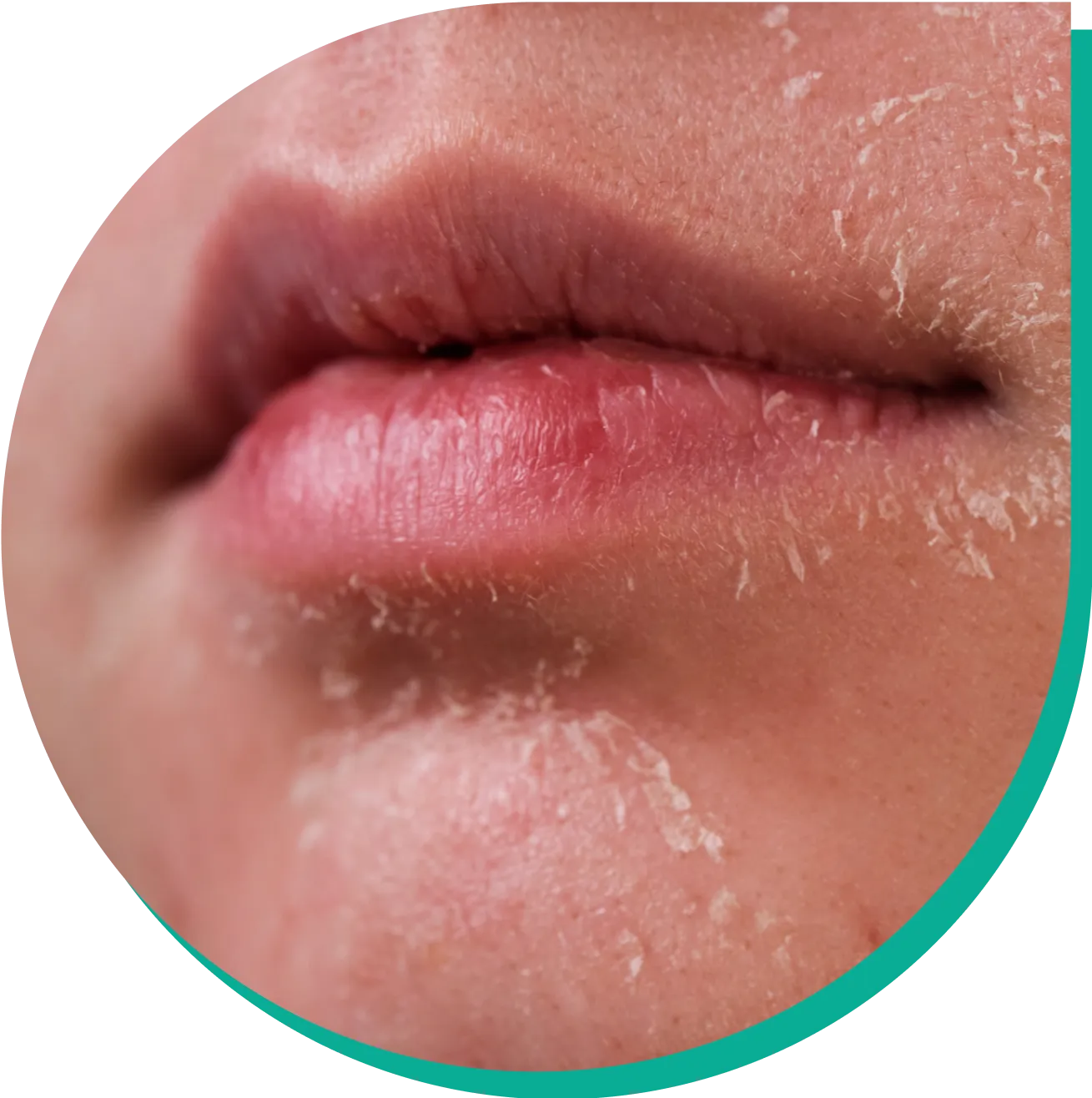
Al Borg Diagnostics
Causes of skin problems: Achieve Healthy Skin
We all aspire to have clear and radiant skin free from acne, pores, and wrinkles, so we search for ways to enhance our skin’s appearance. These ways include masks, home remedies, medical treatments, dietary supplements, and cosmetic procedures. However, before experiencing these solutions, it is crucial to identify the underlying causes of these skin problems.
Causes of skin problems
Common causes and disorders that contribute to skin problems include:
- Bacteria are present in the skin’s pores and hair follicles.
- Fungi, parasites, and other microorganisms that reside on the skin.
- Viruses.
- Weakened immune system.
- Contact with allergens, irritants, or other affected skin.
- Accumulation of oils, bacteria, and dead skin cells on the skin.
- Genetic factors.
- Thyroid disorders, immune system disorders, kidney diseases, and diabetes.
- Dryness.
- Medications, such as those used to treat inflammatory bowel disease.
- Sun exposure and other environmental factors.
It is worth mentioning that there are numerous medical conditions and lifestyle factors that can contribute to skin problems, and some skin problems may have unknown causes. (1)(2)(4)
Linking Causes to Skin Conditions
Below, you will find details and explanations regarding the causes and types of skin problems associated with them: (3)(5)
Pregnancy
Significant hormonal changes during pregnancy can lead to various skin problems, including:
- Stretch marks.
- Melasma.
- Eczema.
Stress and Psychological Issues
Psychological stress can cause hormonal imbalances that manifest as skin disorders, such as:
- Eczema.
- Psoriasis.
- Acne.
- Rosacea.
- Hives.
- Vitiligo.
- Seborrheic dermatitis.
- Lupus.
Sun Exposure
Excessive exposure to sunlight can cause or exacerbate specific skin problems, such as:
- Melanoma.
- Wrinkles.
- Sunburns.
- Actinic keratosis.
Inflammatory Bowel Disease
This term refers to chronic intestinal disorders that cause inflammation in the digestive system. These conditions are often linked to skin problems, including:
- Mouth ulcers.
- Vasculitis (inflammation of blood vessels close to the skin).
- Vitiligo.
- Allergic contact dermatitis.
Diabetes
Certain skin conditions can develop in individuals with diabetes due to increased infection risk and circulatory problems, including:
- Bacterial infections, such as boils and folliculitis.
- Fungal infections, such as athlete’s foot and yeast infections.
- Diabetic rash.
- Scleroderma.
Lupus
Lupus is an inflammatory disease affecting the skin, joints, and other organs. Skin symptoms associated with this condition include:
- A butterfly-shaped rash on the cheeks and nose.
- Skin lesions that are red and scaly.
- Red, purple, or black spots.
These are just a few examples of how various causes can lead to skin problems. Therefore, you must consult a dermatologist or healthcare professional to determine the exact cause of your skin condition and receive appropriate treatment.
Controlling Skin Problems
Understanding the causes and treatments of skin problems is essential to controlling and getting rid of them. However, following additional steps and tips can also contribute to managing skin problems. Here’s what we will explain: (3)
- Consult a doctor to follow an appropriate treatment plan based on your condition. For example, skin treatments may include antihistamines, creams and ointments, antibiotics, vitamins, steroid injections, laser therapy, and biological therapy.
- Avoid triggers for skin diseases, such as stress, psychological pressures, and illnesses.
- Take care of skin hygiene. Choose products suitable for your skin type and avoid using irritating or harsh substances on the skin.
- Make simple modifications to your lifestyle, such as specific dietary changes.
- Get an adequate amount of sleep. Sleeping for at least 7 hours per night is recommended, as diseases can worsen due to lack of sleep.
- Ensure you drink plenty of water and fluids to protect your body and skin from dehydration.
- Follow a nutritious and diverse diet.
- Protect your skin from cold, heat, and wind.
- Undergo specific tests and examinations that help detect early-onset disorders that can negatively affect the skin, such as testing iron levels, vitamin B12, folic acid, vitamin D, and thyroid hormones.
To conduct the tests mentioned above, you can visit any branch of Al-Borg Diagnostics to inquire about these tests or choose what suits you from the Hair & Beauty Package. These tests are conducted by qualified and distinguished medical staff.
References:
- https://www.health.com/condition/skin-conditions/skin-conditions
- https://my.clevelandclinic.org/health/diseases/21573-skin-diseases
- https://www.healthline.com/health/skin-disorders#treatment
- https://www.kendalldermatology.com/blog/common-causes-of-skin-diseases/
- https://www.medanta.org/patient-education-blog/everything-about-common-skin-disorders/
Check your health with
Hair & Beauty Package





